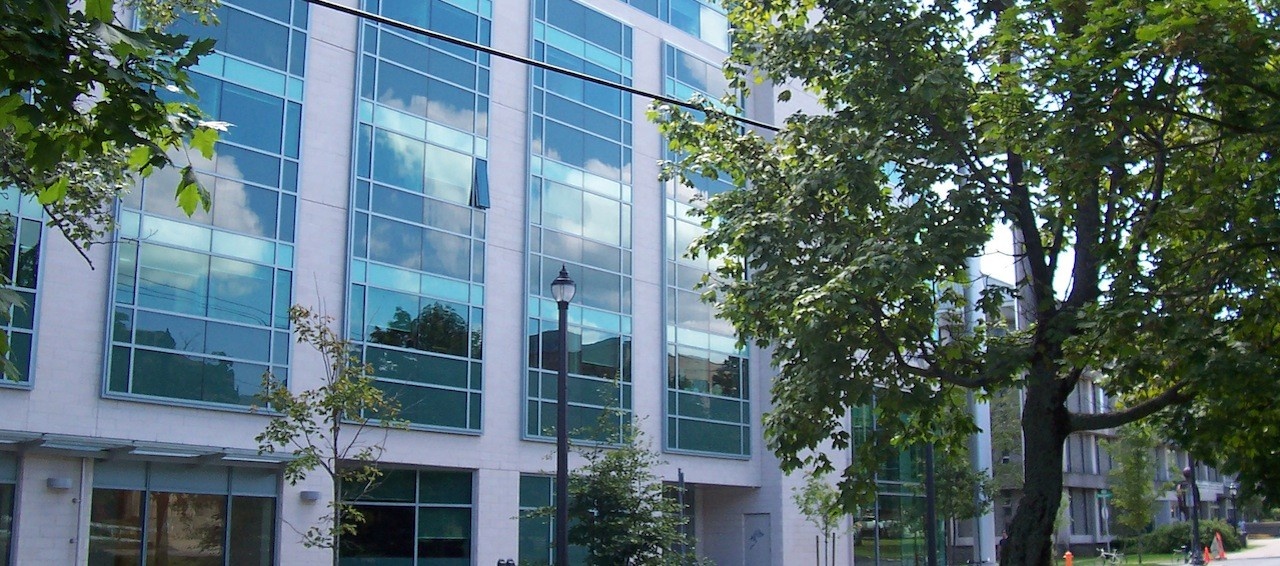News
» Go to news mainTony Walker's Contributions to Environmentalism and SRES

Professor Tony Walker, a distinguished full professor at the School for Resource and Environmental Studies (SRES) at Dalhousie University, has made significant strides in addressing some of the most pressing environmental issues of our time. With a background that blends a decade of consulting experience and extensive academic research, Walker has become a pivotal figure in the study and remediation of environmental contaminants.
Walker’s journey into environmental research began with a focus on managing, mitigating, and remediating contaminants in the environment. His early career, rooted in a 10-year consulting practice, primarily involved dealing with conventional contaminants such as mercury, heavy metals, and organic pollutants. Over time, his focus expanded to include plastic pollution, particularly microplastics, reflecting an adaptability to emerging environmental challenges.
Walker's current research at SRES builds on his consulting background, emphasizing practical solutions to environmental problems. He asserts, “If I find a problem, I also find a solution for the problem just like I used to do for my clients, just to report on it is really not serving society or doing the planet any good.” This solutions-oriented approach is evident in his work on ghost gear, lost or abandoned fishing gear that continues to harm marine life. By utilizing side scan sonar and collaborating with local fishers, Walker's team has significantly improved the efficiency of ghost gear retrieval, providing tangible policy recommendations to reduce gear loss.
A notable example of Walker's impactful research is a global study on branded litter. Conducted with 17 co-authors and encompassing five years of data from over 80 countries, the study revealed that 50% of branded litter found in the environment originated from just 56 companies, with Coca-Cola, Pepsi, and Nestlé among the top offenders. Walker explains, “It’s using global empirical data, to find a solutions for policymakers to legislate regulation similar to the polluter pays principal.” This research has garnered significant media attention and has been instrumental in advocating for policies that hold polluters accountable.
Walker is a strong advocate for addressing pollution at its source, rather than merely cleaning up after the fact. He likens this approach to fixing a leaky faucet: “You don’t get a mop first to start mopping up the water; you turn off the tap first then you start mopping up all the water.” This philosophy underpins his research on both conventional contaminants and plastics, stressing the importance of reducing pollution at its source to achieve sustainable environmental management.
At SRES, Walker's work epitomizes the school's commitment to interdisciplinary research. His projects often involve collaborations with social scientists, engineers, and government agencies, reflecting the diverse expertise within SRES. Walker’s ability to build effective teams has not only advanced his research but also provided valuable training and networking opportunities for his students. He proudly notes, “Some of my former MES students are now hiring me because they’re project managers at consulting firms.”
Walker’s interdisciplinary approach is further exemplified by his use of the National Pollution Release Inventory (NPRI). By analyzing and reworking this publicly available data, Walker and his students have shed light on industrial pollution trends, making the information more accessible and impactful for policymakers and the public. This work exemplifies how SRES integrates practical tools and data to drive environmental change.
One of Walker’s most fulfilling roles is as a mentor to the next generation of environmental professionals. Over his 10 years at SRES, he has seen many of his former students achieve significant career success, often in positions that directly impact environmental policy and practice. Walker views himself as a bridge between academic training and professional careers, helping students transition smoothly into roles where they can make a difference.
He emphasizes the importance of graduate education in environmental studies, particularly the Master of Environmental Studies (MES) and Master of Resource and Environmental Management (MREM) programs at SRES. These programs not only provide advanced academic training but also offer practical internships that often lead to immediate employment. “Many of my former students tend to get career-appropriate positions after their masters much faster,” Walker notes.
Walker attributes much of his career growth to the supportive and dynamic environment at SRES. The school’s interdisciplinary nature and commitment to practical solutions have provided him with the flexibility to pursue diverse research interests and collaborate with a wide range of experts. Reflecting on his time at Dalhousie, Walker says, “I don’t think I could have ever had the same career progression had I been a prof or started as an assistant prof in oceanography, or another department.” The freedom of SRES has allowed for a breadth and variety of research that Walker thinks would have been difficult in another department.
Professor Tony Walker’s work at SRES exemplifies the impactful and solution-driven research that addresses today’s most urgent environmental challenges. Through his interdisciplinary approach, commitment to practical solutions, and dedication to mentoring the next generation, Walker continues to make significant contributions to environmental science and policy. His work not only advances academic knowledge but also drives real-world change, aligning perfectly with the mission of SRES to lead sustainable environmental management and policy.
For more on what Dr. Walker’s up to check out his socials: https://x.com/tonyrwalker1
Recent News
- Dr. Andrew Medeiros named Fulbright Canada Chair in Arctic Studies
- Simon‑Luc Noël's (MES Graduate) Thesis Blog Entry Live on EIUI Website
- shalan joudry’s (MES Graduate/IDPhD Candidate) Directorial Debut to show at TIFF
- Exploring Environmental Social Science: An Interview with Dr. Kate Sherren
- Dr. Andrew Medeiros: Exploring the Frontiers of Freshwater Ecology
- A Profile of Professor Emeritus Karen Beazley
- Dr. Michelle Adams and the Role of SRES in Environmental Sustainability
- Supporting Excellence: Behind the Scenes at SRES
